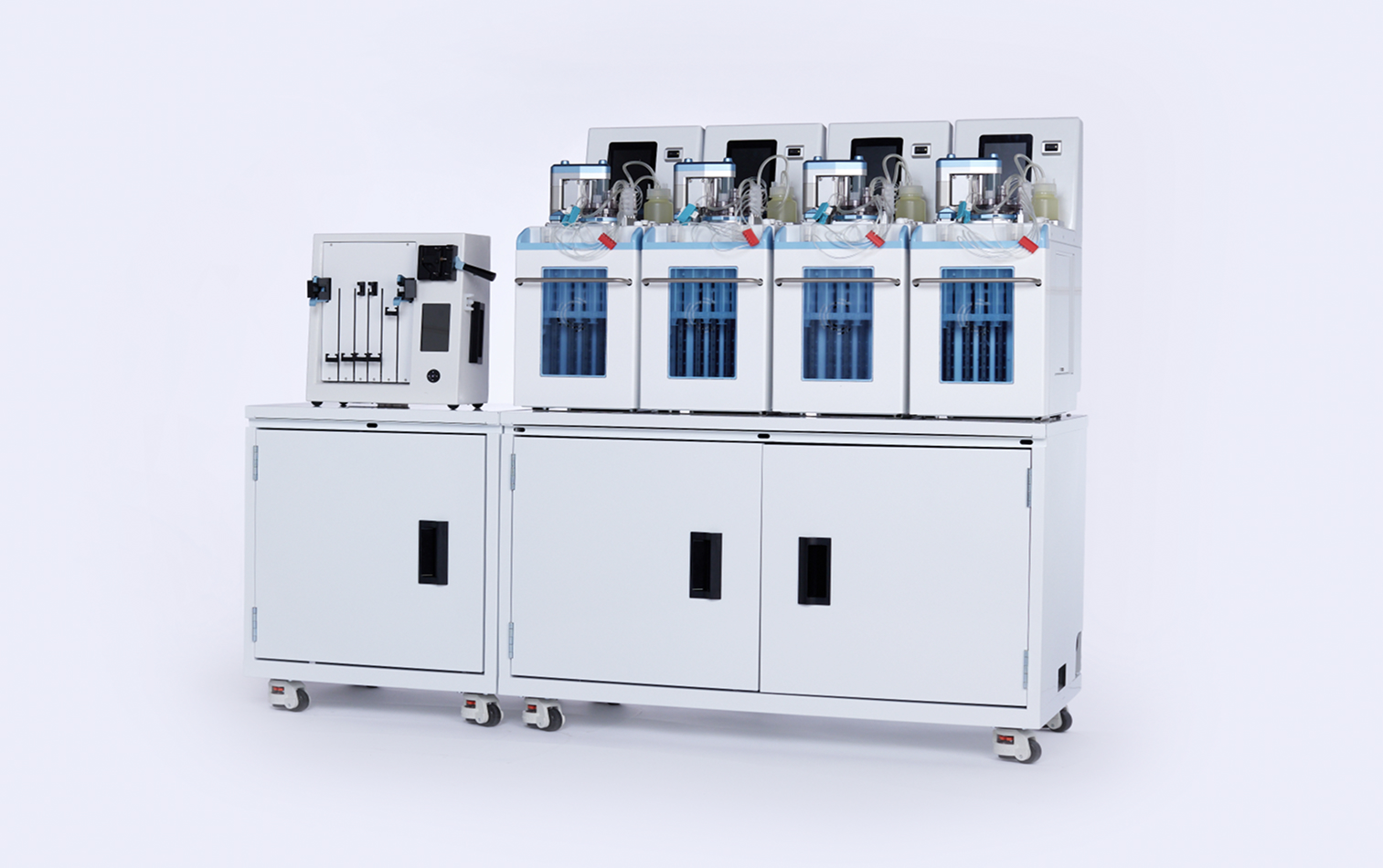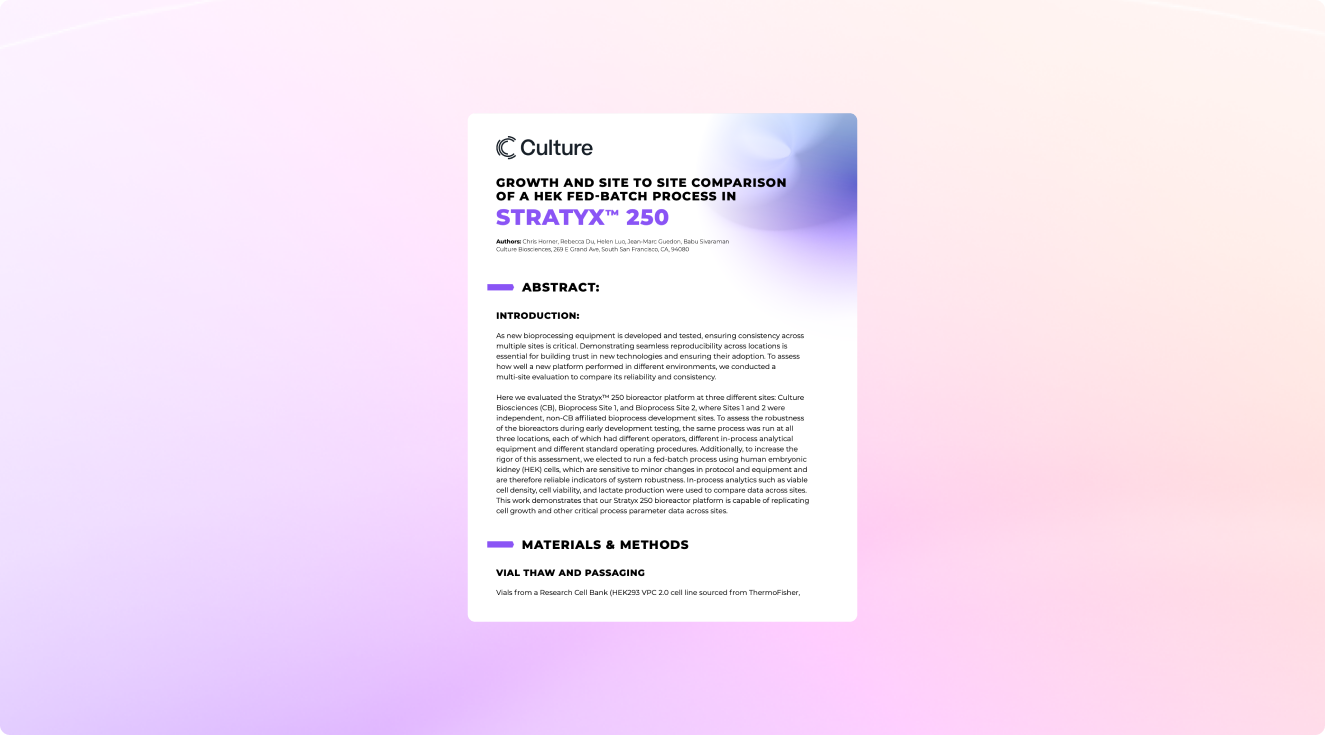Bioprocessing without limits. Anytime. Anywhere.
Introducing Stratyx™, the first mobile, cloud-integrated, laboratory bioreactor designed for flexibility, automation, and scalability. Whether you're focused on early-stage research or preparing your team for bioreactor scale up, our Stratyx bioreactor system provides unmatched control and visibility into every stage of your process development.

How it works
Culture's bioreactor experts built the Stratyx system around Console, our cloud-connected software that enables you to remotely design, monitor and analyze experiments from anywhere. It's more than just another bioreactor system—it's a modular bioreactor platform that offers you the data you need from startup to scale-up.
Set Up Your Process

Auto-Fill Consumables

Run & Monitor Remotely

Analyze & Optimize

Protect Your Data

Stratyx™ 250 Labratory Bioreactor
A compact, scalable laboratory bioreactor designed to deliver high-throughput results with low operational overhead. An ideal solution to help you streamline development and support bioreactor scale up applications.

Accessories




The ‘Cultured’ Advantage
The Stratyx™ 250 laboratory bioreactor sets a new standard for modular bioreactor platforms, delivering superior performance and cost efficiency compared to traditional and first-generation modular systems. Engineered to provide you with the data you need for bioreactor scale up, Stratyx helps streamline your transition from benchtop to pilot production.
“Stratyx™ 250 is already reshaping how we approach process development. The ability to remotely monitor and adjust experiments in real time is streamlining our workflows and improving reproducibility across runs. The combination of cloud integration, automation, and mobility makes it a game-changer for modern bioprocessing.”


Related Resources
Frequently Asked Questions About Stratyx
Stratyx is Culture Biosciences’ next-generation bioreactor platform, designed for flexibility, automation, and remote collaboration. It integrates modular hardware with cloud-native software to support scalable, data-driven bioprocess development.
Unlike traditional systems, Stratyx is fully modular and cloud-connected. It enables users to design, run, and monitor experiments remotely, with real-time data access and automated experiment management — all from a single interface.
At the moment, the Stratyx platform only supports 250mL units. We plan to have 5L support available at a later date.
Absolutely. Stratyx is powered by Console™, Culture’s cloud-native bioreactor software, which allows you to remotely control, monitor, and analyze experiments in real time from anywhere.
Yes. Stratyx features a modular bay design and flexible cart configurations, allowing labs to customize capacity, layout, and accessories such as autofillers and sensor kits.
Stratyx is designed for seamless integration with existing lab infrastructure. It uses standard data formats and offers APIs and data export capabilities, making it easy to sync with downstream analytics and digital lab tools.






.png)
.png)
.png)


